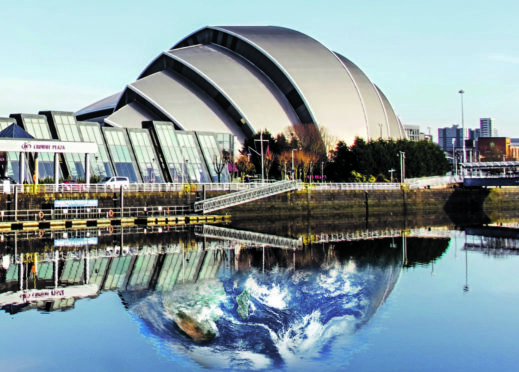
As the gavel slammed down on Cop26 in Glasgow, an emotional Alok Sharma claimed the global climate talks had kept the goal of limiting global temperature rise to 1.5 degrees alive – while conceding “its pulse is weak”.
Based on existing plans and pledges, they still left us on a devastating path towards around 2.4C of warming. But just eight months on, any life-support provided by the Glasgow Climate Pact is draining fast.
A mix of surging living costs and the impacts of the war in Ukraine are sucking momentum from climate action.
In the US, the largest historical emitter, Joe Biden’s promise to be the greenest president in history is being hampered by legal and political roadblocks.
Meanwhile, less than a year after Boris Johnson urged the world to “consign coal to history”, we still await the UK Government’s decision on whether to approve the first new coal mine for 30 years.
It would be another example – after the approval of a new gas field off Aberdeen and the continued failure to block the Cambo oil-field near Shetland – of the UK Government’s “do as I say, not as I do” approach.
A climate-safe planet is being placed at risk in pursuit of an “energy security” built not on our abundant renewable resources but on yet more fossil fuels.
Meanwhile, in East Africa, millions of people are facing extreme hunger due to a combination of extreme weather events – made worse by climate change, as well as conflict and inequality.
Yet the four countries worst affected together account for just 0.1% of current global emissions.
Oxfam’s analysis shows that for every $2 needed for UN weather-related humanitarian appeals, donor countries are providing just $1, with the devastating real costs, such as homes and vital infrastructure destroyed, barely touched.
The First Minister recognised this injustice when she made Scotland the first nation to pledge money – a symbolic £2m – to address climate losses and damages as “reparation” by a country that got rich by burning fossil fuels.
All wealthy countries must emulate this at Cop27 in Egypt in November, whilst acting upon the “request” made in Glasgow for all countries to “revisit and strengthen” their climate plans in 2022.
Worryingly, so far, only Australia and Egypt have done so.
Here in Scotland, a pandemic-dip helped ensure our 2020 emissions target was met, after missing three-in-a-row, but it’s clear that hitting future targets will require substantial new action, funded by polluters.
After all, the theme for Cop27 is “together for implementation” – in Scotland, as globally, that’s badly needed.

Enjoy the convenience of having The Sunday Post delivered as a digital ePaper straight to your smartphone, tablet or computer.
Subscribe for only £5.49 a month and enjoy all the benefits of the printed paper as a digital replica.
Subscribe



